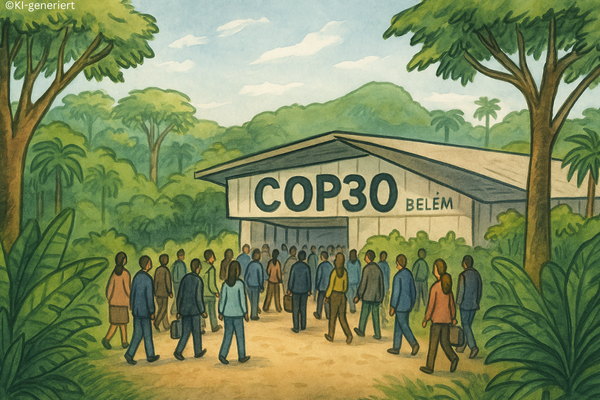COP30 in Belém has come to an end. Dr. Friedrich Bohn, environmental systems analyst and representative of the DKKV, accompanied the negotiations on site and provides insights into the key outcomes. While discussions were extensive, a decisive breakthrough did not materialize: a binding global roadmap for phasing out fossil fuels and ending deforestation did not make it into the final document, despite more than 80 countries calling for such a plan. The Brazilian presidency announced that it intends to present corresponding proposals independently.
The analysis of the national climate targets submitted so far is equally sobering. According to the latest Global Action Tracker, the world remains on a warming trajectory of around 2.6°C—far from meeting the Paris Agreement’s goals. Scientists warn that global emissions must start declining by 2026 to avoid increasingly uncontrollable risks.
Nevertheless, the conference also delivered positive signals. The “Tropical Forest Forever Fund” was established with the aim of making the protection of tropical forests financially more attractive. Brazil and other countries are participating, and Germany has pledged one billion euros to the fund. Numerous expert forums showcased significant momentum in carbon dioxide removal technologies, particularly nature-based approaches such as enhanced rock weathering or reforestation. Still, it remains undisputed that the highest priority must be rapid and comprehensive emission reductions.
From Friedrich Bohn’s perspective, Central Germany faces both opportunities and challenges. While Saxony-Anhalt is making visible progress in expanding renewable energy, major gaps remain in Thuringia—particularly in solar energy, mobility, and heating. At the same time, the transition offers new opportunities for innovation and employment, for example through locally produced solar technologies.
(Image source: AI-generated)


